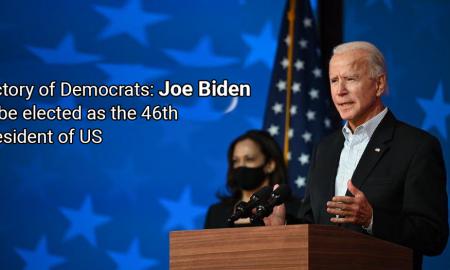The White House announced that on Aug. 28, President Trump intends to choose a new group of Federal Judges that include candidates for two popular appellate courts.
One of the candidates that Trump desires on the US Ninth Circuit Court of Appeal is a Court Judge from Oregon state named Daniele J. Hunsaker. The court is based on the West Coast, which his government condemned for restricting its policies on immigration.
Trump’s option in the East Coast is William J Nardini for the US Appellate Court for the Second Circuit, responsible for supervising states which include New York. William Nardini was previously a clerk for Sandra Day O’Connor, the retired justice for the Federal Prosecutor, Connecticut, which is also covered by the jurisdiction of the second circuit.
Trump was able to move very close to flipping the circuit to contain a greater part of Republican nominees with the endorsement of Nardini and another potential second circuit appointment.
The White House declared the appointment of two appointees, Attorney Grant C Jaquith, and the Deputy Legal Counsel Scott Laurer of the National Security Council both for the US Appellate court for Veteran Claims for New York Northern District.
Ten Judges have been instructed by the White House to fill up the posts on the federal trial court throughout the country.
Among the appointees was Rick Richmond, a criminal appeals attorney and managing partner and founder of the Jenner & Block’s Los Angeles’ office. He was appointed to the Central District of the US District Court in California. He was formerly a partner in Kirkland and Ellis, where he spent about 17 years before joining his current agency.
Another appointee, Shireen Matthews was previously a partner in Latham and Watkins but now is a partner in the San Diego’s office of Jones Day. She was appointed for the Southern District of the United States District Court in California.
A part of the candidates for government district courts: Cory T. Wilson, United States District Court for the Southern District of Mississippi; Adam Braverman, United States District Court for Southern District of California; Fernando L. Aenlle-Rocha, United States District Court for the Central District of California; Sandy Nunes Leal, United States District Court for the Central District of California; Barbara Bailey Jongbloed, United States District Court for the District of Connecticut;
Other appointees are John M. Gallagher, United States District Court for the Eastern District of Pennsylvania, Silvia Carreno-Coll, United States District Court for the District of Puerto Rico and Daniel Mack Traynor, United States District Court for the District of North Dakota.
The Federal Judge ruled that concerning Trump's battle against terrorist activities, an FBI watch list containing over 1 million suspected or known terrorists have been pronounced which violates the constitutional rights of the citizens of the United States in the database.
Anthony J. Trenga, who is the Eastern District of the U.S. District Judge in Virginia, on Sept. 4, made the decision for 23 Muslim Americans who filed a lawsuit as a result of their addition in the Terrorist Screening Database. Judge Trenga found out that the watch list is a breach of their constitutional right to fair treatment.
Trenga noticed that their capacity to travel and take part in routine activities have been limited and decided to support the concerns of the complainants because they were covertly flagged without a concise approach.
Trenga stated that there was no proof or conflict that these plaintiffs should be regarded as terrorists.
He continued by indicating that even innocuous activities could trigger somebody being labeled as a supposed terrorist on the watch list.
The judge stated that including an individual on the watch list is without any proof that the individual participated or has any intention of participating in crime and people who have been absolved of any activity relating to terrorism can also be listed.
Nevertheless, the decision will undoubtedly reshape the administration's procedure for compiling a watch list which has for some time been reprimanded for its error and depicted by critics as a Muslim registry developed as a result of the prominent Islamophobia of the mid-2000s.
Trenga has requested the two parties to provide contentions on solving issues with the database that will not violate the constitution, which is made up of around 4,600 residents or citizens of the U.S. and contains almost 1.2 million individuals as of June 2017.




